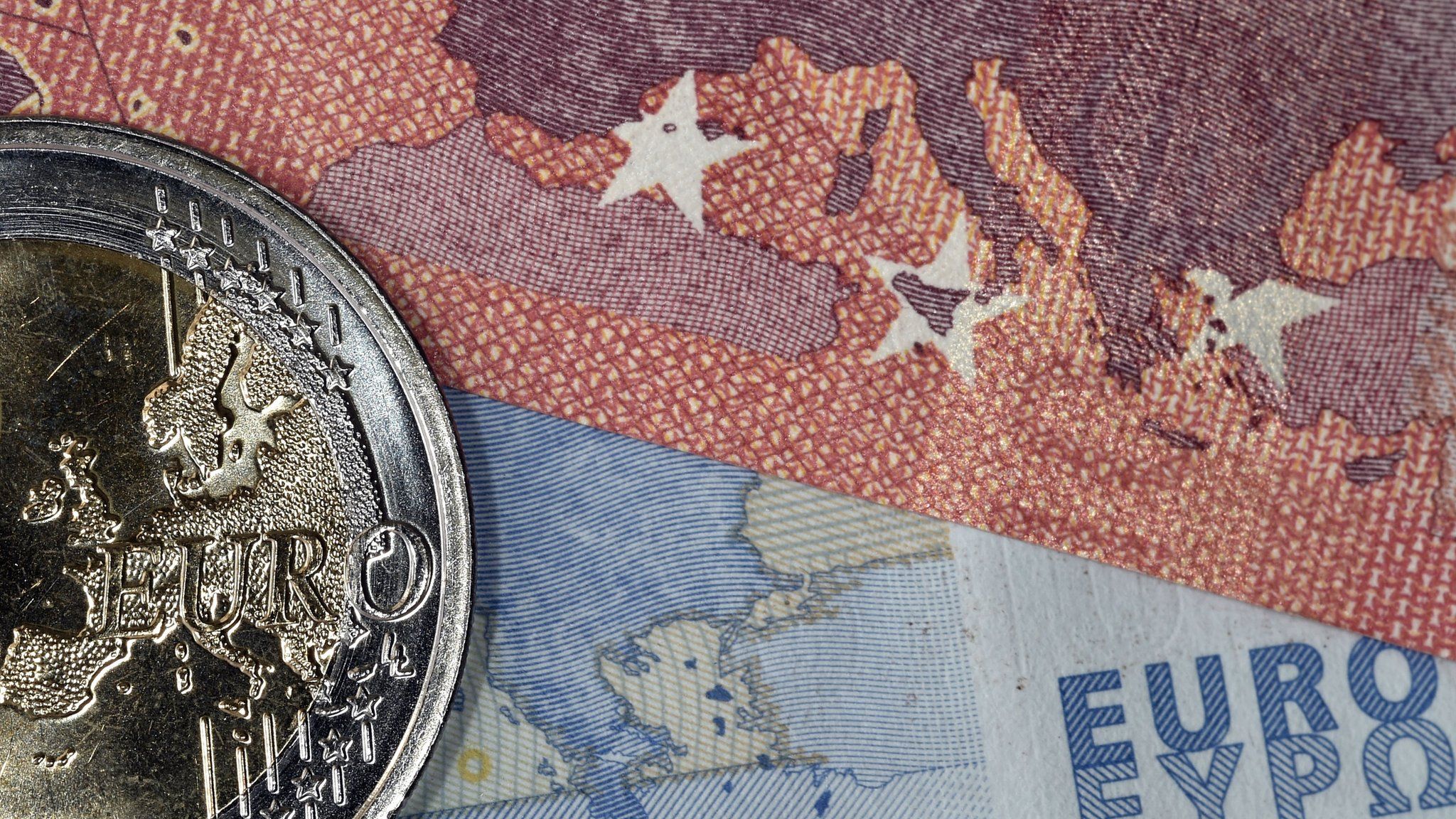Energy price slump sends eurozone into deflation
- Published

Consumer prices in the eurozone fell sharply in February to minus 0.2%, putting more pressure on the European Central Bank.
The slide into deflation is a sharp reversal from the revised 0.3% increase recorded in January.
It is the first fall in inflation since September when it shrank by 0.1%, according to Eurostat.
Energy drove the decline, with prices down 8% in February compared to a 5.4% slide in January.
The dismal figures have dashed hopes that ECB efforts to boost prices were working. That raises the chance of the bank announcing further stimulus measures next month.
It has already announced a cut to its bank deposit rate, which remains in negative territory.
ECB chief Mario Draghi insisted earlier this month the policies were working.
Analysis: Andrew Walker, economics correspondent
It's not the first time the eurozone inflation had slid below zero, and once again the price falls are driven by lower energy costs. But the weakness is widespread.
The breakdown from the EU's statistical agency (not a very detailed one) shows every category having lower inflation than in the previous month. The highest, for services, is just 1%, which is well short of the European Central Bank's target of below but close to 2%.
The ECB has already decided to review its policy next week. The deflation news adds to the chances that the review will lead to more action to get inflation back up (yes, up) towards the target.
That means some combination of more quantitative easing - buying financial assets with newly created money - or taking some of the ECB's interest rates even further below zero.
Nordea economist Holger Sandte said: "Deflation would be a disaster for the euro area as the burden of high debt would increase. Therefore, the ECB will continue easing monetary policy significantly.
"But no matter what the ECB decides to do on 10 March, inflation is likely to hover around zero during the next few months before it picks up - if oil prices behave well."
Economic sentiment across the eurozone deteriorated more than expected in February, according to research by the European Commission.
The Group of 20 (G20) finance ministers and central bankers agreed on Saturday to use "all policy tools, monetary, fiscal and structural - individually and collectively" to renew growth.
- Published12 February 2016
- Published4 February 2016
- Published2 February 2016